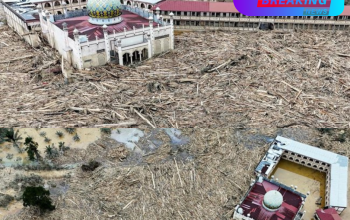In the wake of a hostage release involving Hamas, an Israeli hardline minister has stirred controversy by calling for the total annihilation of the militant group. The statement comes at a time of heightened tensions in the region and underscores the deep political and military divides that persist between Israel and Gaza. As global attention focuses on the dynamics of the hostage swap, this call to action adds fuel to the already volatile situation.
A Hardline Stance in a Volatile Conflict
The minister, whose comments were made in a public speech, has long been associated with a hawkish approach to Israeli security. With a history of advocating for aggressive military responses to perceived threats, the call to annihilate Hamas is consistent with the minister’s broader political views. It also represents the growing frustration among some Israeli leaders over the continued existence of Hamas as a significant player in Palestinian politics.
This statement is not merely a reflection of personal belief but also an indication of broader political currents within Israel’s government. The hardline faction, which includes several ministers and lawmakers, has been pushing for more decisive military actions in Gaza. Their goal is to eradicate the group, which they hold responsible for the deaths of thousands of Israelis and Palestinians in the ongoing conflict.
The Context of the Hostage Crisis
The release of hostages is always a significant event in any conflict, often marking a brief moment of diplomatic breakthrough. However, the circumstances surrounding the release of these particular hostages have only intensified the calls for more stringent measures against Hamas. . However, it also served as a painful reminder of the ongoing threat that Hamas poses to Israel’s national security.
The Israeli government’s position on Hamas has remained firm: the group is viewed not only as a terrorist organization but also as a symbol of the Palestinian resistance against Israeli occupation. To some Israeli officials, Hamas represents an existential threat, and its continued presence is seen as an obstacle to peace and stability in the region.
Public Opinion and International Reactions
While some Israelis support the minister’s call for the destruction of Hamas, others express concerns about the potential consequences of such a hardline approach. The calls for annihilation may resonate with those who have experienced the trauma of terrorism firsthand, but they also risk deepening the divide between the Israeli government and Palestinian factions, including the broader population in Gaza.
On the international stage, the minister’s words are likely to provoke condemnation. Many countries, including those within the European Union and the United Nations, have long advocated for a two-state solution to the Israeli-Palestinian conflict. The idea of Hamas’s complete destruction, while appealing to some, raises questions about the future of peace talks and the viability of a diplomatic resolution.
A Renewed Focus on Military Strategy
The minister’s provocative statement has the potential to shift Israel’s military strategy. The Israeli Defense Forces (IDF) have already conducted numerous operations aimed at weakening Hamas’s infrastructure and leadership. However, calls for annihilation suggest that the military may be tasked with a more comprehensive approach to neutralizing Hamas’s presence.
This shift in strategy could also have implications for the larger geopolitical landscape in the Middle East. As regional powers such as Iran, Egypt, and Saudi Arabia watch closely, the potential for further escalation grows. For instance, Iran has long been a backer of Hamas, providing financial and military support. Any move to dismantle Hamas could, therefore, trigger a broader regional response, further complicating an already intricate situation.
The Complexities of Eradicating Hamas
The notion of completely eliminating Hamas is not as simple as it may sound. Hamas is not just a single organization but a decentralized network with significant support from various factions within Gaza and abroad. It has established itself as the de facto governing authority in Gaza, providing social services and political leadership to millions of Palestinians. As a result, any military campaign aimed at eradicating the group would likely involve significant civilian casualties, further inflaming public opinion and heightening regional tensions.
Moreover, the question of what would replace Hamas is a matter of great concern. Some argue that dismantling Hamas could lead to the rise of even more extremist factions or could leave a power vacuum that destabilizes Gaza even further. The humanitarian toll of such a campaign would also be immense, with international organizations warning of the dire consequences for the Palestinian population.
Conclusion: The Path Forward
The Israeli hardline minister’s call for Hamas’s annihilation reflects the growing frustration within certain political circles in Israel. However, it also raises important questions about the future of the Israeli-Palestinian conflict. While military action may bring temporary relief, the long-term solution to this deeply rooted conflict lies in finding a diplomatic resolution that addresses the underlying causes of the violence.
As tensions escalate and global attention shifts to the Middle East, the actions and rhetoric of both Israeli and Palestinian leaders will play a crucial role in determining whether peace is achievable—or whether the cycle of violence will continue to claim more lives.



